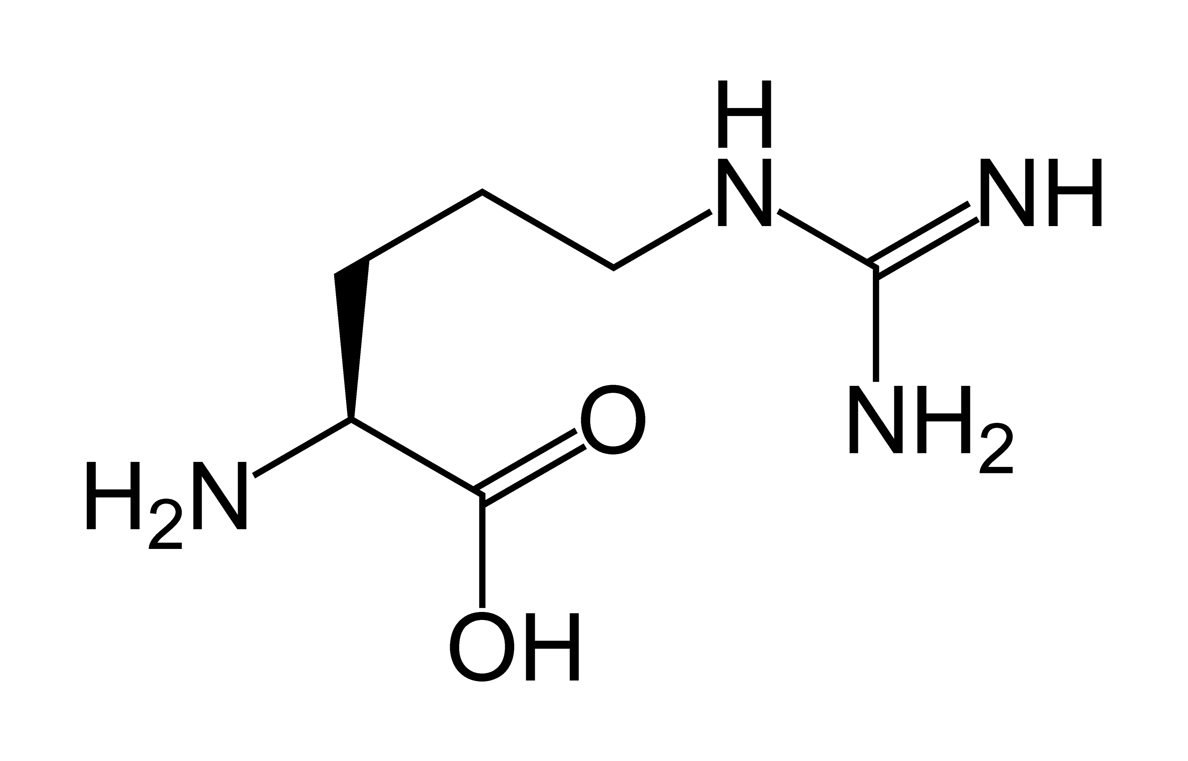
For athletes, gaining muscle mass is critical to competitive success. As a result, athletes work out 24-7, eat a lot of protein, and use supplements to optimize their workouts. Supplement use is highly individual and depends on the athlete’s workout requirements. However, one of the most popular supplements in common use is L-arginine.
What Is L-Arginine and Where Is It Found?
L-Arginine is a an essential dietary amino acid that is commonly found in dairy products like cheese, meat products like chicken, poultry and in seafood like lobster, salmon, snails and tuna. It is also found in weaker amounts in plant sources like wheatgerm, granola, oatmeal and in nuts like cashews, walnuts, Brazil nuts, etc. Normally, L-arginine comprises up to 5-7% of a healthy adult diet and this works out to a dose of 2.5-5mg/day.
How Does It Work?
Although the amino acid is quite common, It has an extremely versatile range of action. It plays an important role in the formation and synthesis of nitric oxide inside the body. It is also a precursor or essential ingredient in the recipe for making polyamines, creatine, agamatine and urea. Studies have shown that the essential amino acid has to be taken in higher than dietary doses to have a significantly beneficial effect on the human body. It seems to reduce the risk of cardiovascular disease, higher blood pressure, improves the immune systems, and decreases stomach acidity.
Although scientific studies have shown that L-arginine has beneficial effects, the exact mechanism of action is unknown. We do know that L-arginine is the only material that contributes to nitric oxide formation and also influences diverse body functions like body immunity, vasorelaxation, transmission of electrical impulses in nerves, and cell toxicity.
The Influence of L-Arginine on Muscular Activity
Like we’ve already said, the exact mechanism of the amino acid is unknown. However, athletes use LA for three specific actions:
- It seems to work as an endogenous growth hormone. The amino acid is required during the formation of new proteins. As new proteins are being made, L-Arginine sends signals to other muscle cells increasing the release of growth hormone and causing the metabolization of fat cells. This results in the formation of a taut muscle with more muscle cells. At the same time, as all fat cells being burned off to produce energy during workouts, the muscle becomes lean and defined.
- It boosts the immune system. L-arginine binds all free radicals and reduces free radical damage. It also seems to have an indirect effect on the immune system by reducing injuries and reducing inflammation that results after injuries. Muscles are repaired faster resulting in better recovery after workouts.
- It increases the endogenous secretion of nitric oxide. Nitric oxide causes vasodilation or increase in the size of blood vessels. As a result, blood cells get an increased supply of blood which contains vital food and oxygen. With extra food, the muscle cells work faster, heal faster, and can work longer resulting in longer workouts and better endurance for the athlete.
All of these actions are beneficial to athletes and they do seem to bring about improved performance. However, we do recommend that you check with your physician before you start any kind of supplementation regimen.
One thought on “Everything You Wanted To Know About L-Arginine”